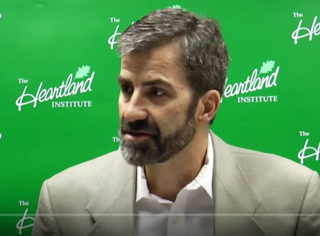A Quote by James B. Stewart
If Republicans are correct that lower rates spur economic growth, then lower rates on all income - made possible in part by raising capital-gains rates - should bolster economic growth across the economy.
Related Quotes
The benefits of a modest warming would outweigh the costs - by $8.4 billion a year in 1990 dollars by the year 2060, according to Robert Mendelsohn at Yale University - thanks to longer growing seasons, more wood fiber production, lower construction costs, lower mortality rates, and lower rates of morbidity (illness).
Since 2008 you've had the largest bond market rally in history, as the Federal Reserve flooded the economy with quantitative easing to drive down interest rates. Driving down the interest rates creates a boom in the stock market, and also the real estate market. The resulting capital gains not treated as income.
































